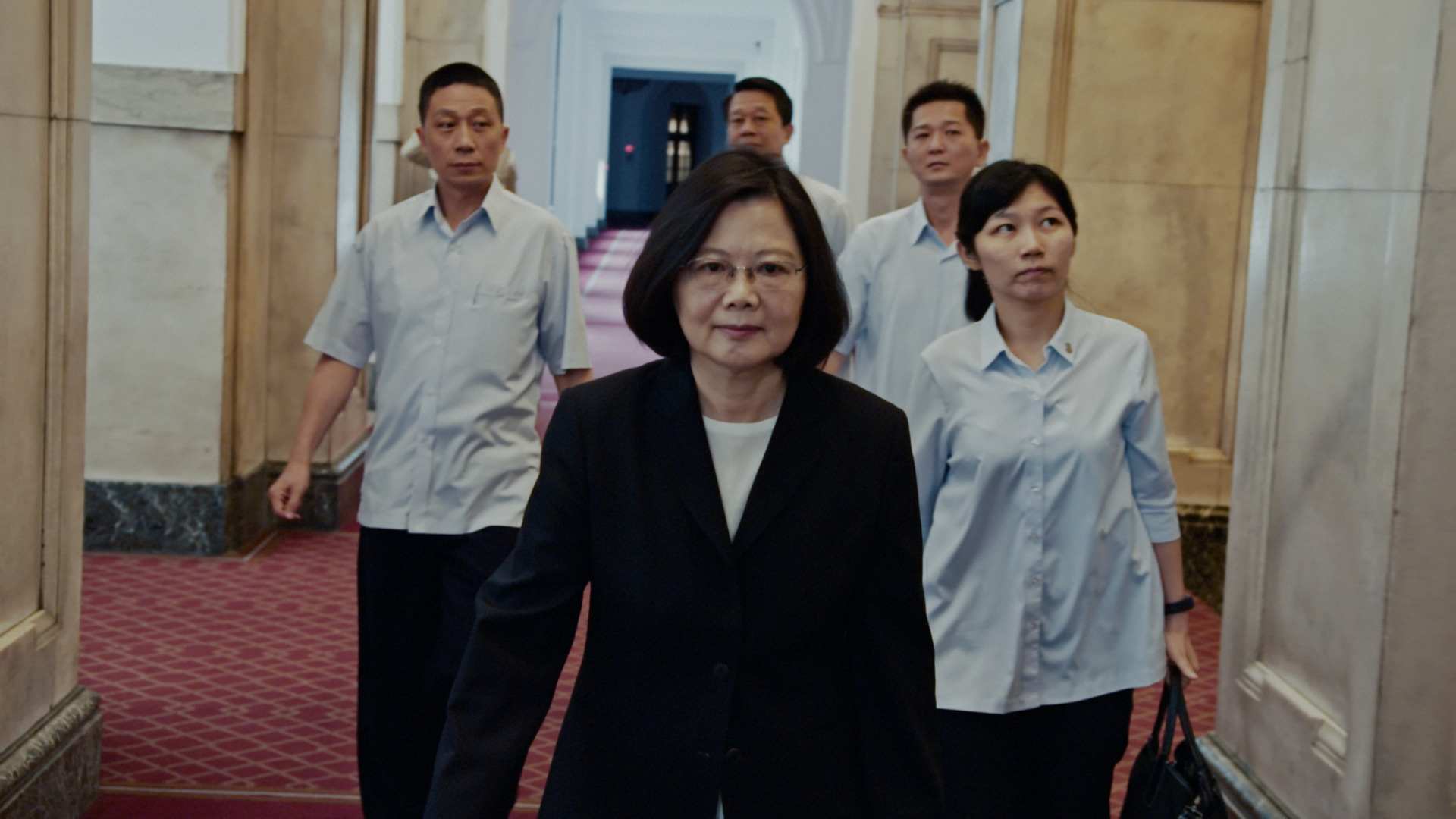
This year, the annual VC Film Festival, presented by Visual Communications, formerly known as Los Angeles Asian Pacific Film Festival, showcased a slate of high-caliber visual art ranging from film screenings to physical installations. From phenomenal directorial debuts like Sean Wang’s “Dìdi (弟弟)” and Zoe Eisenberg’s contemplative “Chaperone” to tangible installations including a visual sound bath of Manzanar and a live podcast discussing the connection between empathy and democracy, VC Film Fest cast a wide net — reaping rewards with their diverse and forward-looking art.
Other festival programs included work from green filmmakers who were a part of the Armed With a Camera (AWC) Fellowship for Emerging Media Artists and a Documentary Features section that told stories of democracy across seas and the hardship of achieving dreams here in America. At a privately held press conference earlier this month, directors included in the AWC and Documentary Features lineup answered questions about their films, shedding light on what inspired them to create their projects.
AWC
The AWC Fellowship is a program that takes a group of young filmmakers dedicated to social and political change and “arms” them with a camera and the VC archives, “one of the largest photographic and moving image archives on Asian Pacific experiences in America.” From there, the cinematic world is their oyster. This year’s cohort tackled narrative and documentary shorts — some experimental, some more linear — all addressing ideas of assimilation, immigration and belonging.

Throughout the AWC press conference, young filmmakers Alfred Bordallo (“Daughter of Guam”), Bryson Nihipali (“Ke Ala”), Honestine Pa’ala-Fraser (“Come Together”), Kayli Kimura (“Sansedai”), Paula Kiley (“Balik/Bayan”) and Zaynah Waseem (“Beyond Bordered Histories”) answered questions pertaining to each of their films. Queries ranged from the challenges of the filmmaking process to what endeavors the young creatives wished to pursue in the future.
As for challenges, many of the cohort members spoke to the difficulties of narrowing down the subject matter as well as having serious conversations with family about their experiences in America. Kimura, who made “Sansedai” about her Japanese grandmother’s immigration to the United States, spoke to the former. She said, “Some challenges were trying to capture the essence of the story in a short film. I captured 15 hours of footage just talking to my grandmother and going through my family’s [archives]. To narrow that down is really difficult, especially in the short time frame of this fellowship.”
Nihipali described the struggle of asking his elders about their lives as native Hawaiians, detailing that some boundaries were hard to cross. “[It was hard] having conversations with my family,” he said. “Sometimes it’s difficult to talk to your elders; there’s a hierarchy … and expectations. Some things you are not meant to ask, but I feel like giving myself permission to ask certain questions and figure out what I’m comfortable sharing. My family was really vulnerable with me, and there’s a big responsibility in carrying their stories forward.”

Bordallo also shared Nihipali’s concern of wondering whether his short would capture his people accurately. “The biggest challenge was curating all the archival media I had to remix for the project,” Bordallo explained. “The CHamoru community is very small, and I have to [curate] with a lot of respect because people’s ancestors are still within these pieces of media.”
Looking toward the future, many of the AWC cohort, now alumni, wish to keep pursuing film. Pa’la-Fraser, who is a writer by trade, fell in love with the filmmaking process during the fellowship and wants to continue on the path — gaining confidence after making her first short with AWC. Similarly, Kiley started her career as a multimedia journalist but realized through AWC that the storyteller she has always been has been enhanced by filmmaking. “For me, I never really saw myself as a filmmaker,” she said. “I never felt a connection to the film industry; my whole family worked in hospitals. But, I live with my grandma, and she’s always on the phone in the morning talking to all her friends on Facebook — she’s always telling stories. I came to realize this is what filmmaking is — it’s telling stories. It just [takes] new shape.”
Waseem, whose short combined multimedia elements to explore being part of a diaspora community, thinks of film as an invaluable touchstone to leave behind. “My ancestors experienced one of the largest mass migrations in human history, and with that comes a lot of leaving behind archival contents like videos and photographs,” she explained. “Growing up was mostly just stories. [Filmmaking] preserves a moment in time and allows us back into the lives that maybe our ancestors lived through. That’s why I am inspired to be in this space with everyone.”
Documentary Features
Three filmmakers from the Documentary Features section, Yi Chen (“Dissident”), Erica Tanamachi (“Home Court”) and Vanessa Hope (“Invisible Nation”), were present for the festival’s press conference. Yi and Hope’s documentaries focused on political issues, with Yi covering the lives of three different Chinese dissidents and Hope covering the tenure of Tsai Ing-wen, the first female president of Taiwan. Tanamchi’s followed Cambodian American basketball player Ashley Chea as she navigated high school. While each of these films differed in subject matter, all three of the filmmakers were able to speak about the nuances of the documentary genre, finding connections between all three of their filming processes.

When it comes to documentaries, filmmakers work closely with the subjects; but, it’s often hard to gain the trust of the individuals featured in the film. This was particularly difficult for Tanamchi, who understood that when working with a subject as young as Chea, they needed to have boundaries. The fact that “Home Court” started filming during COVID-19 made the situation more complex as well. For the first few years, Tanamchi couldn’t film Chea’s home; but, once Chea got older and built that trust, the film crew was finally allowed into her home. In the end, Tanamchi found that this slow-moving process only helped the documentary. “It was actually a really important scene in the film,” she admitted, recalling the first time she and her producer were allowed to film inside Chea’s home.

Hope felt similarly about the process of gaining trust with her film’s subjects, Tsai Ing-wen, though there were more hoops of bureaucracy to jump through when it came to gaining access to the sitting head of state. But, Hope understood this wasn’t something her team should rush. “It’s a leap of faith. It’s a constant negotiation and building of trust,” Hope explained. “But, [we had] faith that we would do our best to understand not only the local politics and developments that were unfolding but the larger context.”

Yi had a slightly different point of view on the matter. For her, it was important to find subjects who were willing to open their lives up to her for the documentary, and her intimate way of filmmaking ultimately made it possible to build trust between the two parties. “I can’t force anyone if they’re not willing to [share], no matter how hard I try. Secondly, the way I approach my filmmaking, I take the observational approach and really immerse myself and spend a lot of time with the characters. I spend a lot of time with them on and off camera. For me, that’s a way for me to build access and gain trust.”








